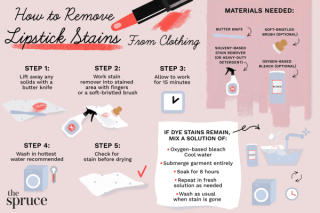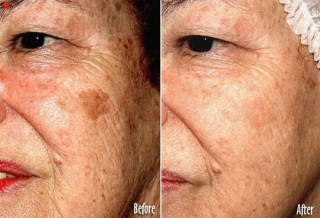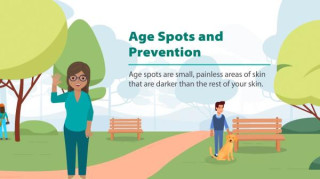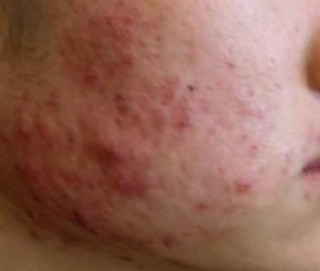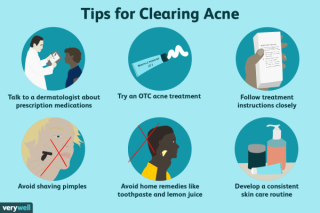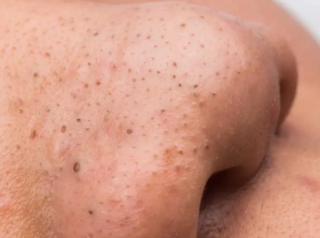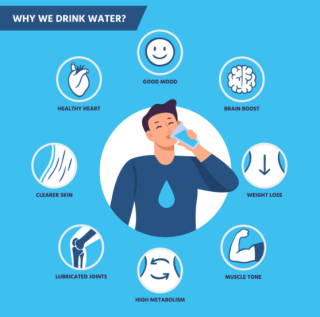The Making of OpenAI: Birth, created at Feb 09, 2026 |
SouthEast Asia Advertising Market - Comprehensive Analysis by Country, created at Jan 26, 2026 |
United States's Top 10 Video Streaming Companiescreated at Jan 26, 2026 107 107 The United States is the third-most populous country globally:Population (Estimated): Approximately 336.5 million as of May 2024.Average Household Size: Around 2.51 people per household (as of 2023).Median Age: Approximately 38.9 years (as of 2023).Ethnic ... |
Korea's Streaming Story: Top 10 Platforms in a Digital Nationupdated at Jan 26, 2026 233 233 Population, |
Problem-Solving Narratives in Startup Programscreated at Jan 16, 2026 159 159 Problem-Solving Narratives in Startup ProgramsThe approach of starting with "I am solving this problem" is a fundamental and heavily emphasized component of almost all startup programs, |
Business Structure Comparison: Sole Proprietorship vs S-Corporationcreated at Jan 09, 2026 168 168  1 1 Business Structure ComparisonEstablishing a formal business structure offers legal protection and tax advantages.The primary choices for a new venture, |
Affordable Payroll Solutions for Family-Based Businesses in the USupdated at Jan 09, 2026 221 221 Understanding Payroll for Family-Based Businesses in the USWhen establishing a family-based small business in the United States, |
Phillippine's Top 10 Video Streaming Companies 2026updated at Jan 16, 2026 365 365 Philippines - Population and Demographics:Total Population (January 2024 Estimate): Approximately 118.80 million people.Total Households (2020 Census): 26, |
Research in Integrated Insurance Service for Starupscreated at Oct 30, 2025 1,940 1,940  1 1 There are several integrated service providers that offer health, |
Essential Employee Benefits in the US for a Startupcreated at Oct 30, 2025 2,230 2,230 These are benefits that will help you attract and retain talent, |
Does Lyme disease affect mental functioning?updated at Nov 07, 2025 1,444 1,444 Does Lyme Disease Affect Mental Functioning?Lyme disease, |
Thoughtful Ways to Give Your Boss a Christmas Present Without Appearing toupdated at Oct 30, 2025 1,409 1,409 Giving gifts during major holidays holds significant meaning in East Asian cultures.This is a well-articulated description of gift-giving traditions in East Asian cultures.You've accurately captured the key elements::Importance: Gift-giving is a fundamenta... |
Things what you need to think when you will be in the layoff meetingupdated at Feb 23, 2025 1,837 1,837 Katherine Kleyman is a social influencer having great activities at Linkedin.She shared a great example of what we should do when we face a layoff meeting.Most people usually do not remember what they can take based on the labor contract.Below example show... |
Guide for Meta Recruiter Phone Screen Interviewupdated at Nov 07, 2025 2,128 2,128 The Meta Interview Process OverviewThe Meta interview process is multi-staged, |
Who should take Biological Therapy?created at May 19, 2009 1,883 1,883 Biological therapy, |
Side effects of human growth hormonecreated at May 19, 2009 1,497 1,497 Side effects of human growth hormone (HGH) can vary depending on dosage and individual factors, |
Does other diseases accompany Lyme Disease?updated at Nov 08, 2025 1,758 1,758 Lyme disease can often be accompanied by other diseases or conditions. These are sometimes referred to as co-infections or opportunistic infections.Here's a breakdown:Co-infections: These are other tick-borne diseases that can be transmitted at the same ti... |
What are the commonest Lyme Disease Symptoms at onset?updated at Nov 08, 2025 1,570 1,570 Lyme disease, |
Treatment for Lyme diseasecreated at May 06, 2009 1,346 1,346 Lyme disease is treated with antibiotics, |
Recognizing Lyme Disease Symptoms in Humans: A Comprehensive Guidecreated at May 06, 2009 1,573 1,573 Lyme disease, |
Does Chemical Peeling or Laser Treatment Work?updated at Nov 08, 2025 1,677 1,677 Both chemical peels and laser treatments are popular options for improving skin appearance, |
Will I be able to adjust to Valva Cancer well?created at May 05, 2009 1,414 1,414 Adjusting to a vulvar cancer diagnosis and treatment is a deeply personal journey, |
What is ovarian cancer?created at May 05, 2009 1,351 1,351 Ovarian cancer is a type of cancer that begins in the ovaries, |
Can endometrial cancer be found early?created at May 05, 2009 1,276 1,276 Early detection of endometrial cancer is possible, |
What are the risk factors for endometrial cancer?created at May 05, 2009 1,453 1,453 Risk factors for endometrial cancer include older age, |
Will I be able to adjust to this disease well for Pancreatic Cancer?created at May 04, 2009 1,212 1,212 Adjusting to a pancreatic cancer diagnosis is a deeply personal and challenging process, |
Understanding Hiccups: Unraveling the Mystery Behind the Spasmscreated at May 03, 2009 1,466 1,466 Hiccups, |
Lots of people, created at May 03, 2009 |
Understanding Radiation Therapy for Brain Tumorscreated at May 04, 2009 1,488 1,488 Radiation therapy for brain tumors uses high-energy radiation to kill cancer cells and shrink tumors.This can be delivered externally through a linear accelerator (external beam radiation therapy) or internally via implanted radioactive seeds (brachytherap... |
Understanding Surgery for Brain Tumors: A Comprehensive Guidecreated at May 04, 2009 1,393 1,393 Brain tumor surgery aims to remove as much of the tumor as safely possible while minimizing damage to healthy brain tissue.The approach varies depending on the tumor's location, |
Unraveling the Enigma: Exploring the Causes of Brain Tumorscreated at May 03, 2009 1,512 1,512 The precise causes of brain tumors remain largely unknown, |
What are the symptoms of Brain Tumors?updated at Nov 11, 2025 1,574 1,574 Brain tumor symptoms are highly variable, |
Exploring Treatment Options for Bone Cancer: A Comprehensive Guidecreated at May 03, 2009 1,568 1,568 Treatment for bone cancer depends on several factors including the type and location of the cancer, |
The Mindset Shift: Embracing Confidence to Minimize Acneupdated at Nov 08, 2025 1,501 1,501 Minimizing acne transcends mere skincare routines; a confident mindset plays a pivotal role.Stress and negative self-perception can worsen acne, |
Blood Pressure Machine Said I Have No Blood Pressure!?updated at Dec 14, 2024 1,491 1,491 If your blood pressure machine says you have no blood pressure, |
To understand Acne and Pimplesupdated at Nov 08, 2025 1,603 1,603 Acne and pimples are common terms for the same inflammatory skin condition affecting hair follicles.Understanding the underlying causes and available treatments can help manage and improve skin health. What Causes Acne?Acne arises from a combination of fac... |
The Safety when sitting in a Hot Tub during Pregnancycreated at Sep 25, 2009 1,786 1,786 Pregnancy and Hot Tub Use: A Cautionary TaleSitting in a hot tub during pregnancy is generally not recommended and can pose significant risks to both the mother and the developing fetus.The primary concern is the potential for overheating. Why Hot Tubs Are... |
The Best Mascara when you apply it does not look like you use Mascaracreated at Sep 06, 2009 1,560 1,560 Achieving the "No-Mascara" Mascara LookThe holy grail of mascara isn't always about bold, |
What lipstick can I buy that looks like the red colour that Regina Spektor wears?updated at Nov 08, 2025 1,202 1,202 Finding Regina Spektor's Signature Red LipstickPinpointing the exact lipstick shade worn by Regina Spektor is a challenge, |
How do you get lipstick out of fabric?updated at Dec 14, 2024 1,252 1,252 To remove lipstick from fabric, |
How to fade age spots safely?created at May 06, 2009 1,248 1,248 Several methods safely fade age spots, |
How to avoid age spots?created at May 05, 2009 1,369 1,369 Preventing age spots, |
How do I prevent age spots from recurring?created at May 05, 2009 1,261 1,261 Preventing age spot recurrence requires a multi-pronged approach focusing on sun protection: consistently using a broad-spectrum sunscreen with an SPF of 30 or higher daily, |
Are there any acne treatments specifically for people with dark skin? Are there any treatments specifically harmful to dark skin?created at May 03, 2009 1,255 1,255 While there aren't acne treatments *specifically formulated* for dark skin, |
Can anything be done about scarring caused by acne?updated at Nov 07, 2025 1,353 1,353 Acne scarring can be a frustrating and persistent reminder of past breakouts.While completely eliminating scars is often difficult, |
Finding Your Path to Clear Skin: The Best Way to Treat Acnecreated at May 03, 2009 1,567 1,567 The best way to treat acne involves a multi-pronged approach tailored to individual needs.This includes consistent cleansing with a gentle, |
Understanding Blackheads and Scarring: What You Need to Knowupdated at Nov 08, 2025 1,360 1,360 Understanding Blackheads (Open Comedones)Blackheads, |
The Importance of Hydration: How Much Water Should You Drink?created at May 08, 2009 1,439 1,439 Proper hydration is crucial for numerous bodily functions, |


